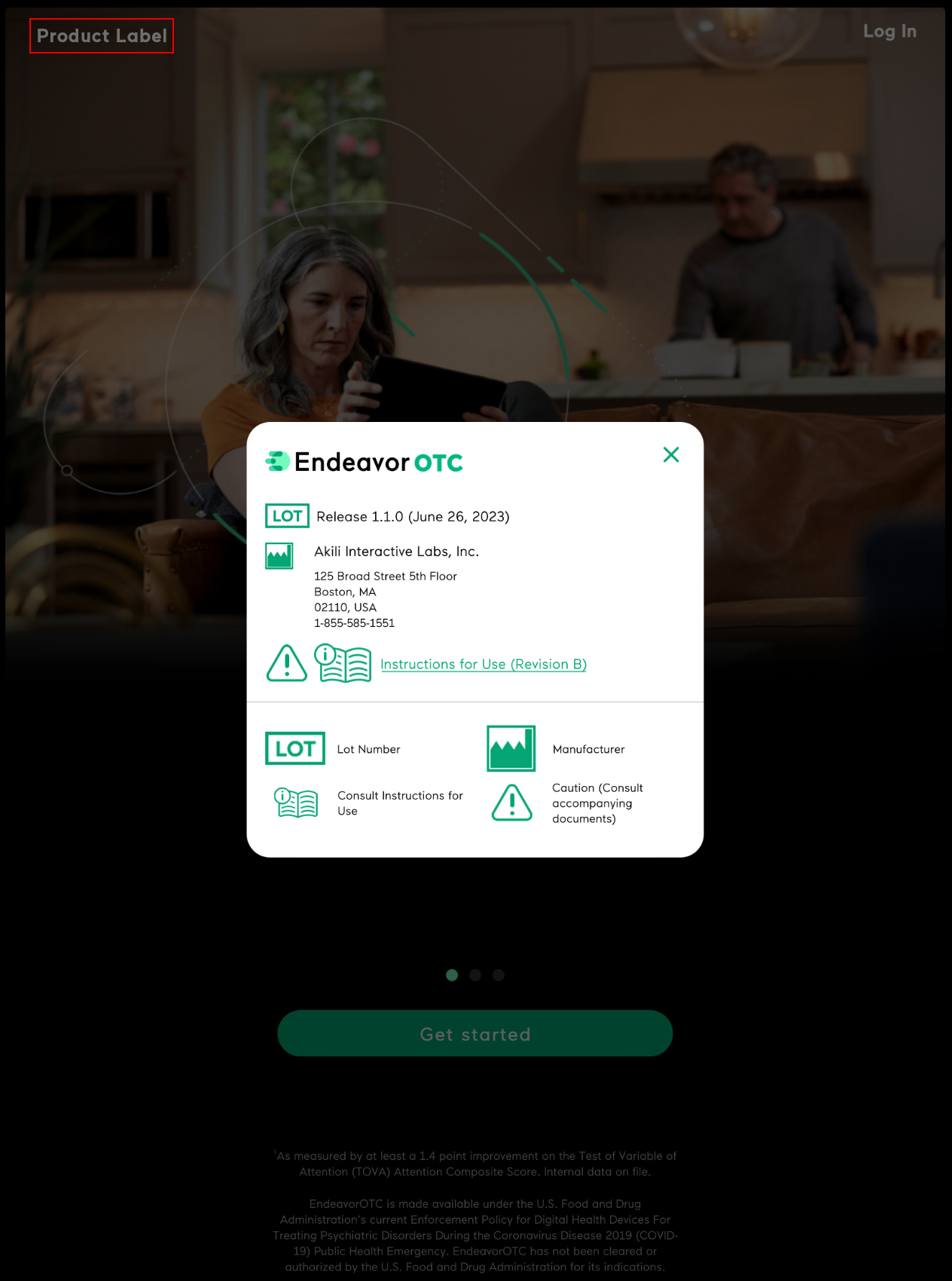Our Research: The Science Behind EndeavorOTC

EndeavorOTC is a digital ADHD treatment for adults, based on 10 years of ADHD research. Our teams include neuroscientists, cognitive scientists, and healthcare professionals who focus the design on the neurocognitive differences and needs of adults and children who have been diagnosed with ADHD.
The treatment uses an adaptive algorithm designed to encourage users to multitask between two different challenges while completing video game-like missions. It automatically adjusts the difficulty level to each person’s individual needs, so that they are optimally training over time. The algorithm was developed to train the neurological systems related to attention and memory. Individuals are able to track their progress with the Focus Score indicator built into the treatment.
Our goal is to constantly improve our product for those with ADHD through ongoing research on user needs and product results. Our latest clinical trial evaluated the impact of EndeavorOTC in adults with ADHD with three key takeaways.

The Study
Participants were given an iPad Mini and a version of EndeavorOTC. They were instructed to use the treatment for 25 minutes a day, 5 days per week, over the course of 6 weeks. Study participants engaged in this treatment in addition to whatever they were usually doing to manage their ADHD – some were taking ADHD medications, some were doing therapy, and others weren’t doing any other treatments at the time. Notably, the participant group was 70% women, which is crucial as the experiences of women with ADHD are often underrepresented.
The Findings
The study shows that adults who completed the study improved their attention, ADHD symptoms, and quality of life, underscoring that they were incorporating the digital interventions into daily life. This was true both for adults who were taking ADHD medication at the same time, and those who were not.
Attention improvements in adult participants were nearly seven times larger than those seen in an earlier clinical trial with children aged 8-12 with ADHD. In comparison, ADHD medication generally shows similar effects for children and adults.
The treatment was found to be safe; a few participants reported headaches or nausea over the course of the study, but there were no serious side effects.
Overall, the study shows the safety and efficacy of this intervention for adults with ADHD. Its significant positive outcomes on attention, ADHD symptoms, and quality of life, coupled with its lack of side effects and engaging interface make it a promising tool for those with ADHD. This research supports the efficacy of EndeavorOTC, while also paving the way for further innovations in digital ADHD treatments. Read the full clinical study here.
The Participants
The study started with 221 participants and was completed by 153 adults, encompassing a wide age range from 18 to 76 years, with an average age of 40. As previously noted, the study included a significant representation of women, who comprised 70% of the participants.
The study also included people with a range of racial and ethnic backgrounds, with 9.8% of study participants identifying as Black or African American, 4.6% Asian, 0.7% American Indian or Alaska Native, 76.5% White, 4.6% multiple races, and 3.3% identifying as another race/ethnicity. Additionally, 15% of the participants reported being Hispanic or Latino. Overall the study provided a broad perspective on the intervention’s effectiveness across different life stages, demographics, and management strategies.
